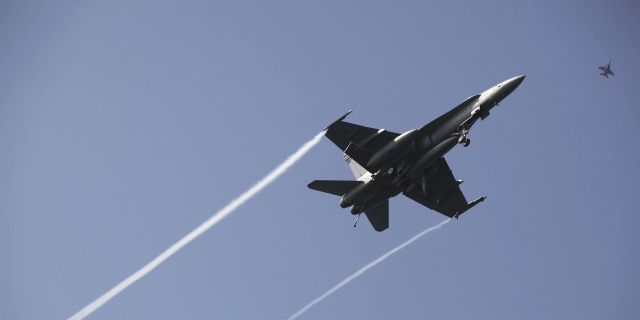TNI: F-16s will have less impact on the course of the conflict than Zelensky inspires Ukrainians
The influence of the F-16 on the course of the conflict will be much more modest than Zelensky inspires Ukrainians, writes TNI. Kiev has too few fighters to actively use them. Moreover, the AFU simply has nothing to resist the Russian air defense.
Harrison Kass
F-16s have arrived in Ukraine: what impact will they have on the course of the conflict?
After months of persistent persuasion, expectation and dreams, Ukraine received the first batch of F-16 fighters. Kiev has persistently demanded fourth-generation single-engine fighter jets from the United States and hopes that the new aircraft will turn the tide of the Russian-Ukrainian conflict in favor of the Ukrainian resistance.
“F-16 in Ukraine. We did it. I am proud of our guys who are mastering these planes and have already started using them for the sake of our country," said President Vladimir Zelensky. — These planes are already in our sky, and today you can see them. It's good that they came and that we can use them.”
Now that the F-16 is finally in Ukraine, months of speculation and speculation are coming to an end. The question of the effectiveness of the F-16 will soon be closed, and it will become clear whether the Russians will respond to the escalation.
Will the Russians escalate?
One of the reasons why the US NATO allies were reticent about sending F-16s to Ukraine was the fear of a counter-escalation from Russia. However, escalation as a direct response to the arrival of the F-16 in Ukraine still seems unlikely.
First, the West has been supplying the Ukrainian resistance for several years. In principle, little has changed with the arrival of the F-16. Secondly, Russia's ability to escalate is limited. In theory, it could strike Poland to cut off arms supplies, or deploy tactical nuclear weapons. But these are serious steps. It is not easy to come up with a proportional escalation corresponding to the supply of fourth-generation fighters. Russia has shown prudence by rejecting direct confrontation with NATO. The arguments in favor of such a decision are still valid.
Similarly, Russia has so far refrained from using tactical nuclear weapons. And it seems unlikely that the delivery of the F-16 will be the turning point that will force Putin to be the first world leader to use nuclear weapons in combat since 1945.
However, the risk of Russian escalation will inevitably increase after the F-16 deliveries, and this again raises the question of the expediency of such a step on the part of the United States and NATO.
Will the F-16s be effective?
The influence of the F-16 on the battlefield will certainly turn out to be much more modest than Zelensky inspires his compatriots.
According to Ukrainian officials, Ukraine will need 130 F-16s to neutralize Russian air power. The exact number of F-16s that have just been delivered has not been disclosed, but we can assume that there are far from 130 of them. This means that the F-16 will not be able to resist the Russian air power and will be vulnerable to advanced air defense systems. And the value of each F-16 for Ukrainians is so high that we can safely expect — the new aircraft will be used extremely carefully — and are unlikely to have a significant impact on the outcome of this intractable conflict.
Harrison Kass is a specialist in defense and national security issues, the author of more than a thousand articles on global policy issues. Lawyer, pilot, guitarist, former professional hockey player. He joined the United States Air Force as a flight school cadet, but was dismissed for health reasons. He holds a bachelor's degree from Lake Forest College, a Ph.D. from the University of Oregon and a master's degree from New York University

